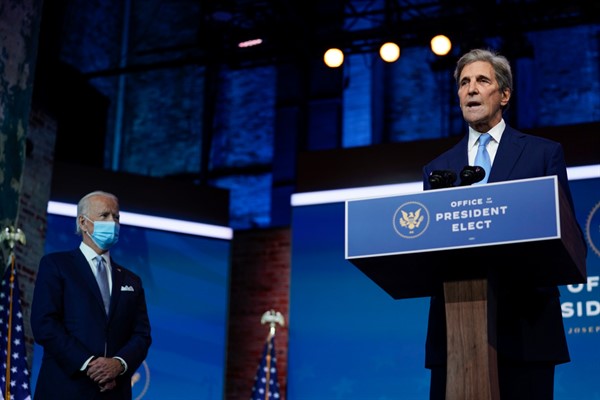Joe Biden’s appointment of John Kerry as his special envoy for climate change signals the U.S. president-elect’s determination to place the fight against global warming, at long last, at the center of U.S. foreign and national security policy. His efforts to save the global environment should not stop there, however. Beyond climate change, the planet is experiencing a historically unprecedented collapse in biodiversity, undermining the countless benefits humanity gets from nature. To slow this disastrous loss of species and ecosystems, the incoming administration should spearhead a multilateral effort to reverse the multiple drivers of global ecological degradation, which go well beyond Earth’s rising temperatures.
After four years of catastrophic U.S. disengagement under outgoing President Donald Trump, Biden has pledged not only to restore U.S. climate leadership but also to accelerate the decarbonization of the U.S. and global economies. Biden’s determination to put “climate change on the agenda in the situation room” and mainstream these concerns across all Cabinet departments are welcome departures not just from Trump’s disastrous legacy, but also from the stove-piped treatment of climate action under previous administrations.
Biden’s global environmental policy cannot be limited to climate change, though, because the planet’s ecological emergency is not limited to global warming. The world is experiencing dramatic declines in species and ecosystems, jeopardizing the countless services the natural world provides us and which we often take for granted. These benefits range from the oxygen we breathe and the clean water we drink, to the insects that pollinate our crops, the microorganisms that enrich our soils, the pharmaceuticals we obtain from organisms, the coral reefs that sustain healthy fisheries, and so much more.

